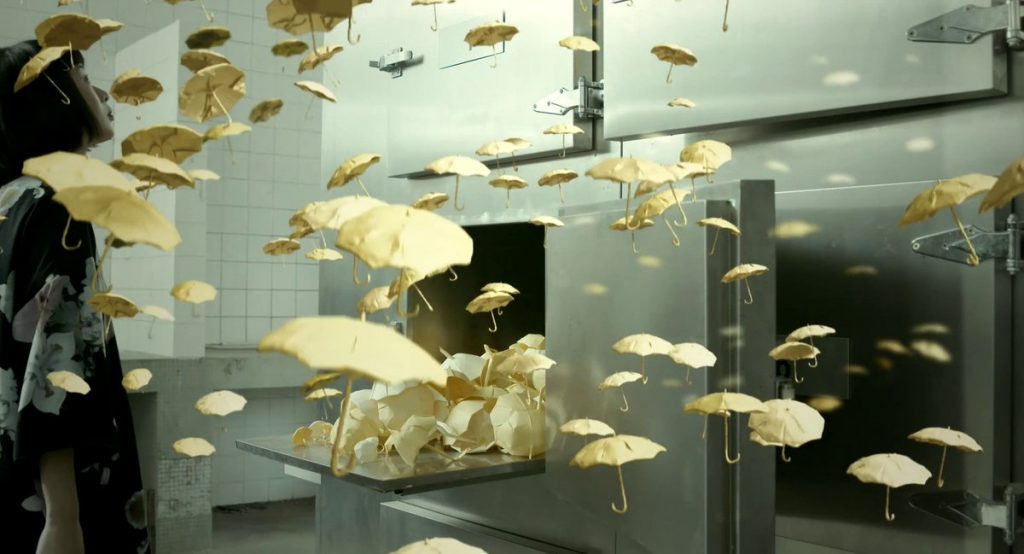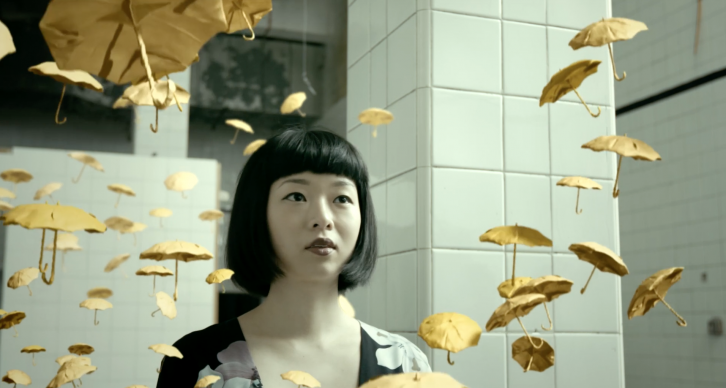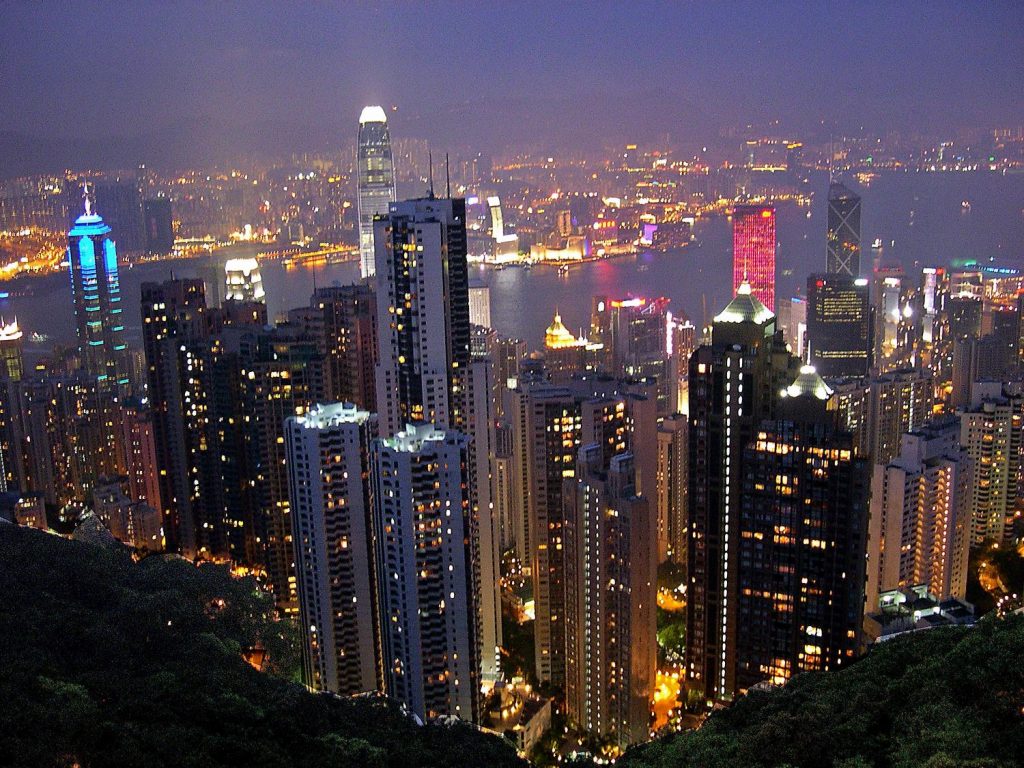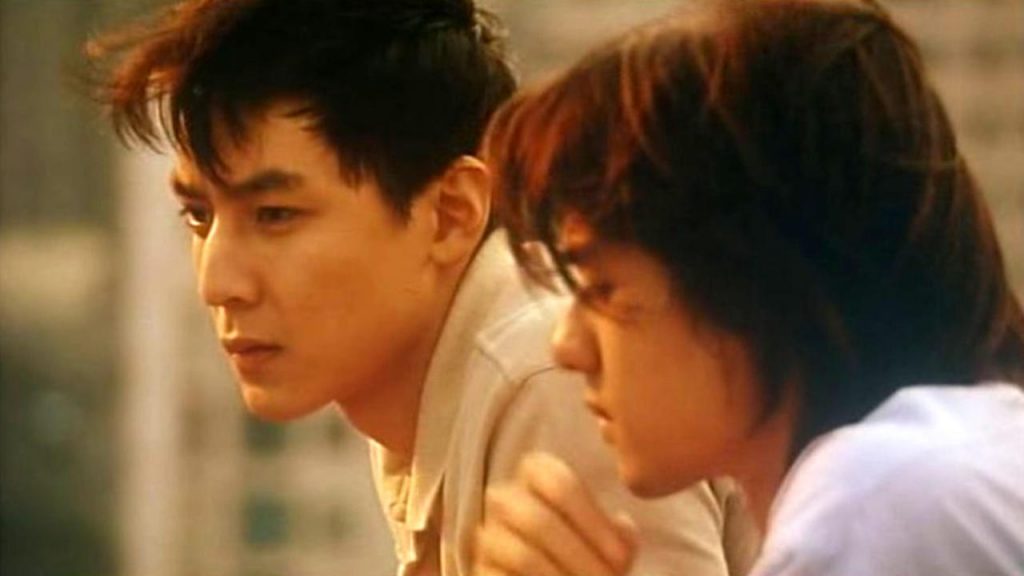Every day while CFI’s Hollywood readers take in the business of the Chinese film industry, the actual movies can sometimes seem exotic or remote. But in major US cities, mainstream Chinese films are increasingly available: thanks to Wanda’s purchase of AMC and distributors like China Lion, they get American theatrical releases practically simultaneous to their premieres at home. Though they receive virtually no publicity outside the non-Chinese community, these films are more than worth seeking out by anyone serious about engaging the Chinese industry, understanding the Chinese sensibility and familiarizing themselves with China’s talent pool. Periodically, CFI will review and point readers in the direction of noteworthy US releases of contemporary commercial and independent Chinese titles.
Loosely structured look at kids, activists and senior citizens in Hong Kong from famed cinematographer Christopher Doyle.

Legendary cinematographer Christopher Doyle takes a documentary approach to ‘Hong Kong Trilogy: Preschooled, Preoccupied, Preposterous.’ Using what appear to be real-life characters, Doyle fashions a series of interlocking storylines that are alternately gentle, funny, pretentious and frustrating.
The movie’s largely opaque opening section may be its most interesting. Doyle backs up imagery of schoolchildren with musings from various students. Young Ching Man hands out religious fliers and douses houseplants with “holy water” while wondering whether her brother is succumbing to the Devil. Chubby Vodka Chan calls himself the victim of bullying, but his stories are all about beating up his opponents.
Doyle’s unobtrusive camera follows these and other characters through a Hong Kong we rarely see onscreen, a kaleidoscope of quiet neighborhoods, tree-lined walkways, antique trams and majestic seascapes. The kids are intriguing if not quite believable, and Doyle films them with insight and sensitivity.

The director shifts focus in the second chapter to members of 2014’s Umbrella Movement. A Hong Kong version of Occupy Wall Street, Umbrella Movement protestors set up thousands of tents that closed down Harcourt Road, an important thoroughfare through the city. Doyle visits with musicians, bartenders, a feng shui consultant and others. An English teacher who drinks a lot of beer (and bears some physical resemblance to Doyle) provides strained comic relief.
The final section follows senior citizens on a speed-dating daytrip. Guided by an amateur rapper, they listen to a fifties-style singer of nightclub songs, play miniature golf, and wind up at a beach party with many of the other characters in the film.
Although it’s impeccably shot, Hong Kong Trilogy asks a lot from viewers. Doyle highlights engaging, offbeat characters, but doesn’t provide enough of a narrative or a point-of-view to justify hanging around with them. The plotlines that do emerge feel wan and underdeveloped. Doyle remains a distinctive cinematographer, even if his directing here is ultimately disappointing.
— This article originally appeared on Film Journal.
WHAT DOES THE GRADE MEAN?
Here are some recent & modern-era vintage Chinese and Hong Kong films for comparison
- A+
- PLATFORM (2000, dir Jia Zhangke)
- THE WORLD (2004, dir. Jia Zhangke)
- DRUNKEN MASTER 2 (1994, dir. Lau Kar Leung & Jackie Chan)
- KUNG FU HUSTLE (2004, dir. Stephen Chow)
- A
- LET THE BULLETS FLY (2010, dir Jiang Wen)
- THE MERMAID (2016, dir. Stephen Chow)
- A TOUCH OF SIN (2013, dir. Jia Zhangke)
- STILL LIFE (2006, dir. Jia Zhangke)
- MOUNTAINS MAY DEPART (2015, dir. Jia Zhangke)
- LITTLE BIG SOLDIER (2010, dir. Ding Sheng)
- EXTRAORDINARY MISSION (2017, dir. Alan Mak & Anthony Pun)
- MR SIX (2015, dir. Guan Hu)
- A WORLD WITHOUT THIEVES (2004, dir. Feng Xiaogang)
- SUZHOU RIVER (1999, dir. Lou Ye)
- HOUSE OF FLYING DAGGERS (2004, dir Zhang Yimou)
- RAISE THE RED LANTERN (1991, dir. Zhang Yimou)
- A-
- DUCKWEED (2017, dir. Han Han)
- I BELONGED TO YOU (2016, dir. Zhang Yibai)
- B+
- THE GREAT WALL (2016, dir. Zhang Yimou)
- OLD STONE (2016, dir. Johnny Ma)
- CRAZY STONE (2006, dir. Ning Hao)
- GO, LALA GO (2010, dir. Xu Jinglei)
- B
- KUNG FU YOGA (2017, dir. Stanley Tong)
- RAILROAD TIGERS (2016, dir. Ding Sheng)
- THE WASTED TIMES (2016, dir. Cheng Er)
- CHONGQING HOT POT (2016, dir. Yang Qing)
- MONSTER HUNT (2015, dir. Raman Hui)
- B-
- JOURNEY TO THE WEST: THE DEMONS STRIKE BACK (2017, dir. Tsui Hark)
- SOME LIKE IT HOT (2017, dir. Song Xiaofei & Dong Xu)
- BORN IN CHINA (2016, dir. Lu Chuan)
- D-
- TINY TIMES (2013, dir. Guo Jingming)








